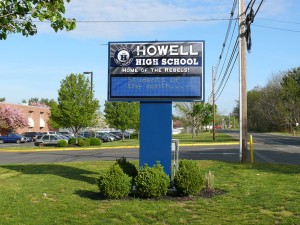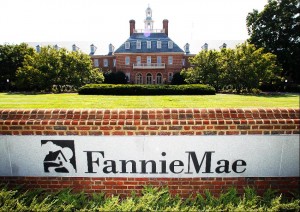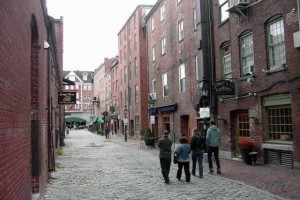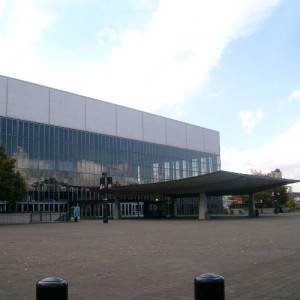- Portland, Ore., has come up with a new funding source for affordable housing: tourists!
 The city council has voted to dedicate a share of the tax on Airbnb-type rentals to the city’s Housing Investment Fund — $1.2 million a year. That’s a drop in the bucket in a city where the affordable housing shortfall amounts to about 24,000 units, but it’s better than nothing.
The city council has voted to dedicate a share of the tax on Airbnb-type rentals to the city’s Housing Investment Fund — $1.2 million a year. That’s a drop in the bucket in a city where the affordable housing shortfall amounts to about 24,000 units, but it’s better than nothing. - Jackson Hole officialdom has agreed to consider a plan that would dial back commercial growth in favor of housing, with density bonuses offered for workforce housing. A citizen campaign bearing slogans like “Housing not hotels” apparently got a receptive hearing.
- The Republican leadership of Howell, N.J., is backing an affordable housing project despite, and in the face of, some unusually ugly civic opposition — in a state where support for affordable housing is typically associated with Democrats.
 This profile of courage, in the Atlantic, includes a fine summary of the tortuous (and torturous) fate of affordable housing in New Jersey after the landmark Mount Laurel decisions. Another example of how good intentions and a supportive legal infrastructure are not enough.
This profile of courage, in the Atlantic, includes a fine summary of the tortuous (and torturous) fate of affordable housing in New Jersey after the landmark Mount Laurel decisions. Another example of how good intentions and a supportive legal infrastructure are not enough. - The “recapitalization” of Freddie Mac and Fannie Mae, as proposed by two economists, would direct a flood of new money to the states for affordable housing via the Housing Trust Fund and the Capital Magnet Fund.
 Vermont would get $4.6 million a year for affordable housing for 20 years under this scheme. Sounds great, but whether this proposal has any legs is an open question. Some members of Congress would just as soon do away with Freddie Mac and Fannie Mae altogether.
Vermont would get $4.6 million a year for affordable housing for 20 years under this scheme. Sounds great, but whether this proposal has any legs is an open question. Some members of Congress would just as soon do away with Freddie Mac and Fannie Mae altogether. - A community of 15 tiny houses is scheduled to open later this month in Seattle to provide transitional quarters for homeless people. Granted, this isn’t exactly cheerful news, but at least it’s different.
Category Archives: Portland
Unease Down East
Burlington and Portland, Maine, have a few things in common. They’re the biggest cities in their states, they both pride themselves in their trendy livability (as measured by magazine rankings, food-trucks per capita, those sorts of things), they both experienced negligible development of rental housing for many years, they both worry about gentrifying neighborhoods, and they both have a housing affordability problem.
Portland’s problem might seem a bit more acute, thanks in part to a six-part series in the Portland Press Herald that elaborates on what the mayor-elect calls a “housing crisis.”  The themes echo other crises around the country – soaring rents (up 40 percent over the last five years), stagnant or declining incomes, middle-income renters priced out and fleeing to the burbs.
The themes echo other crises around the country – soaring rents (up 40 percent over the last five years), stagnant or declining incomes, middle-income renters priced out and fleeing to the burbs.
The average two-bedroom apartment in Portland, according to the newspaper, is $1,560. That’s too bad, because an apartment like that is out of reach for anyone with a housing voucher. HUD puts the fair-market rent for a two-bedroom in Portland at $1,074 – which happens to be well below Burlington’s $1,309. What’s more, landlords in Portland can capitalize on the hot rental market by charging non-refundable application fees, which their counterparts in Vermont cannot.
How Portland is going to relieve its “crisis” is an open question. The mayor-elect has appointed a committee. The city is examining municipally owned land with an eye toward potential sites for affordable housing. New developments are supposed to make some units affordable for middle-income renters, but that inclusionary policy apparently doesn’t extend to the working poor. Here, as elsewhere, the remedies seem to pale before the problem.
Housing notes from all over
- Before you dismiss the idea that shipping containers can be used for housing, consider this student-housing complex in Amsterdam, as described by The Guardian. Can you imagine something like this on the northwest corner of Burlington’s Main Street/S. Winooski intersection, which has been suggested as a possible site for privately developed UVM student housing?
- The City Council in Portland, Ore., where a “housing emergency” has been declared and where rents have risen more than 20 percent over five years, boosted the city’s affordable housing fund by $64 million. The money comes from a property-tax set-aside, and the council is looking for more revenue sources.
 And one of the councilors has lofted an idea that some other cities beset by under-used mega-athletic complexes might want to seize upon: sell the Portland Coliseum for to a developer who will put affordable housing in its place.
And one of the councilors has lofted an idea that some other cities beset by under-used mega-athletic complexes might want to seize upon: sell the Portland Coliseum for to a developer who will put affordable housing in its place.
- As we’ve noted before, the nationwide initiative to affirmatively further fair housing calls for affordable housing development (at least a good share of it) in low-poverty, “high-opportunity” areas. A country club would seem to fit that description, at least generically. So we were interested to learn that the Planning Board in Mahwah, N.J., recently approved the redevelopment of a country club there for affordable housing.
Before you get too excited, though, you should know about the downside: Much of the land is contaminated from years of pesticide spraying, and the cost of remediation (which includes removal of hundreds of trees) contributed to a reduction in development’s affordable capacity: down from 350 multi-family units to less than 100 single family homes.
- Uber will deliver $1 million to Oakland’s affordable housing fund for the privilege of turning a former Sears building into an office space.
 The deal was prompted partly by fears that Uber’s corporate arrival, with an anticipated 3,000 employees, would lead to gentrification and even higher housing prices.
The deal was prompted partly by fears that Uber’s corporate arrival, with an anticipated 3,000 employees, would lead to gentrification and even higher housing prices.
- Attention, City Market, Hunger Mountain, et al: A food co-op in affordability-challenged Asheville, N.C., is contemplating adding affordable housing to its expansion plans, which also (and less intriguingly) include enlarging its existing store, parking lot and office space.

- Speaking of parking, the Berkeley City Council has voted to target underused parking-lot space for affordable housing development.
 Council members were reminded at the meeting that the average cost of a 1 bed-room apartment is $1,400 a month, and that’s under rent control! The average cost of an apartment not under rent control? $3,256 a month.
Council members were reminded at the meeting that the average cost of a 1 bed-room apartment is $1,400 a month, and that’s under rent control! The average cost of an apartment not under rent control? $3,256 a month.

